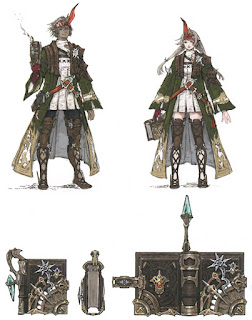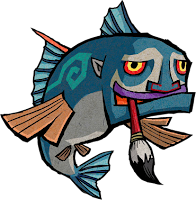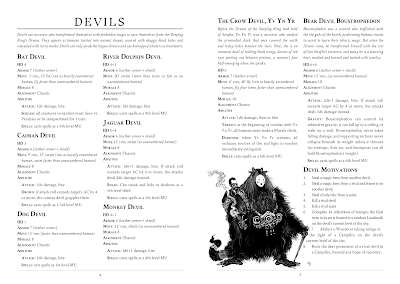a few gods with a focus on the way they interact with people and the way their worshipers perceive them. also, a demihuman race-as-species you should be able to slot in to most nearly any game. i tried to make it play distinctly from human characters without demanding a lot of buy in from players. borrowed some of the d&d language as word game rules in this dungeon of signs post.
Heche Ke Eche
Mama Muerte, The Sheikha of the Dead
The first of the living to die, and the first of the dead to return to the Lands of the living. Pray to Heche Ke Eche to raise the dead, speak with the deceased, or save someone from death’s door. She is cruel, wise, patient, a friend to the dispossessed and an enemy of the arrogant. She likes rum, cash, cigars, and prefers her shrines and temples gaudy and personal.
Worshipers of Heche Ke Eche pray like this: “Oye mama, I have a favor to ask you…” Praying to Heche Ke Eche is like asking your mom for money. Her most devout followers are scrupulously casual and try to never be impressed with anything. If they do not bow and scrape to their own goddess, why should they worry too much about you?
El Grangúl
Papa Fin, the Sheikh of the Dead
Built the wall between the Lands of the Living and the Lands of the Dead. Pray to El Grangúl to exorcise ghosts, keep the dead in their graves, and your ancestors out of your business. He is orderly, condescending, charitable, and an enemy to liars. He likes sacramental wine (you can sometimes get him to bend the laws of nature if he’s drunk enough), golden doubloons, flowers, and prefers his shrines and temples symmetrical and carefully tended.
Worshipers of El Grangúl pray like this: “Permiso, padre, I have something to ask you…” Praying to El Grangúl is like admitting to your dad you did something stupid. His most devout followers keep records of their prayers in black-bound ledgers, so that they always remember what their patron has done for them.
The Gunsaints
Sabata, Sartana, & Django; the Calamity Three; Pistoleros Santos
The three best sharpshooters in the history of Labyrinthium; they killed each other in a three-way standoff and then banded together in a mythical shootout with Death itself. Now they are a tripartite demidivinity with power over Gunmetal, Gunpowder, and Lead. Pray to the Gunsaints to see your bullets fly true, to ruin the weapons of your enemy, and to successfully complete a mission of vengeance. The Gunsaints like bullets, antique guns, and personal mementos, and prefer shrines constructed in moments of desperation.
Worshipers of the Gunsaints pray like this: “I swear by the three I’ll kill this motherfucker dead.” Praying to the Gunsaints makes you feel fierce and sick and angry. Their most devout followers carry three guns, one for each saint, so that they can better understand the act of murder.
Other gods: Hatüey No-saint, Caracaracol, Shams del Sur, Al-Ra’ad al-Kasif, The Queen of Sheba
The Cats of New Barbary
A race for old school Dungeons and Dragons
The Cats of New Barbary are not cats at all, but something like a leopard, something like an Old Barbary macaque, with clever clawed hands and yellow lamplike eyes. They stand three feet tall when crouched on all fours, and can walk on two, though they don’t like to. They aren’t quite as intelligent as humans, and they struggle to speak. The Cats of New Barbary often live in ruins claimed by the jungle, but they can integrate into human society surprisingly well–several regional saints are Cats, and an infamous New Barbary crime boss is one as well.
Cats of New Barbary can be clerics, thieves, or fighters. They cannot be magic-users.
- The Cats of New Barbary cannot wear armor heavier than leather regardless of class, and it costs twice as much to fit their inhuman frames. They cannot wield weapons, but their unarmed attacks deal d6 damage.
- They cannot use scrolls or magic items, regardless of class, but there are a few methods for making their claws bypass supernatural immunities.
- They can climb any surface a human could conceivably scale, and they do not need equipment or a skill check to do it.
- They can run twice as fast when on all fours, but they can’t carry anything in their hands when doing so.
- The Cats of New Barbary have a powerful sense of smell, and can track a scent they know as a bloodhound (4 in 6 chance of success).
- Outside of New Barbary, the Cats do not enjoy the same legal rights as humans, and Cats unaccompanied by humans are frequently kidnapped, bought, sold, murdered, and chased away without repercussion.
- The Cats of New Barbary can understand language as well as any human, but a Cat can only speak a number of words equal to its Intelligence score. These are chosen at character creation, and can be from any language. All Cats of New Barbary know sign language, which lets them communicate more freely with anyone who knows it, but their capacity for self-expression is limited–they cannot use any word with more than two syllables when communicating this way.


























